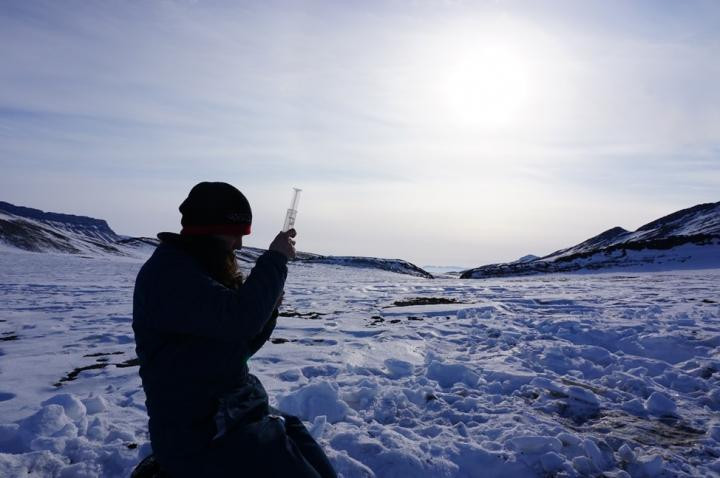Life on Mars: The search for aliens has begun in the Canadian Arctic
Current instruments designed to search for alien life tend to be relatively large, heavy and power-hungry.

High in the Canadian Arctic – one of the closest analogues to Mars on Earth – researchers have been testing the effectiveness of new techniques to detect the presence of life, in the form of tiny microorganisms.
These methods could, one day help astronauts identify any alien life that may be present on Mars, and indeed, other worlds in the Solar System and beyond.
"The search for life is a major focus of planetary exploration, but there hasn't been direct life detection instrumentation on a mission since the 70s, during the Viking missions to Mars," said Jacqueline Goordial, an author of a new study published in the journal Frontiers in Microbiology.
"We wanted to show a proof-of-concept that microbial life can be directly detected and identified using very portable, low-weight, and low-energy tools."
Currently, instruments designed to search for alien organisms on other worlds search for biosignatures, which are only indirect evidence of life. These instruments tend to be relatively large, heavy and power-hungry, making them unsuitable for missions to places like Europa and Enceladus – moons of Jupiter and Saturn respectively – which are prime targets for further exploration.
In light of this, Goordial and colleagues from McGill University examined the feasibility of using multiple, miniature instruments to directly detect and analyse life, using existing low-cost and lightweight technology in novel ways.
The result was a unique "life detection platform" capable of analysing soil samples for signs of biological activity. The team's methods was tested in the Canadian Arctic as they needed to be able to function in the extreme cold.
"Mars is a very cold and dry planet, with a permafrost terrain that looks a lot like what we find in the Canadian high Arctic," said Goordial. "For this reason, we chose a site about 900 km from the North Pole as a Mars analogue to take samples and test our methods."
The researchers found that not only was their technology able to function in the harsh environment, they were able to actively detect microbial life in the field and isolate organisms which have never been cultured before.
In theory, the team's platform is promising, however, it won't be incorporated into any space missions just yet,
"Humans were required to carry out much of the experimentation in this study, while life detection missions on other planets will need to be robotic," said Goordial. "The DNA sequencer also needs higher accuracy and durability to withstand the long timescales required for planetary missions."





















